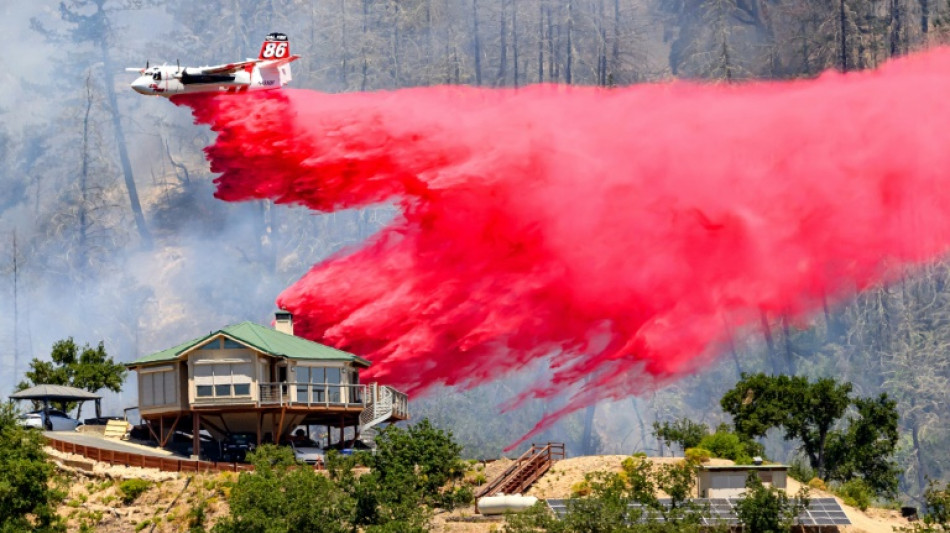

California fires spread in July 4 weekend heatwave
California firefighters battled multiple blazes in record heat Friday, with a new fire breaking out near the famous Yosemite National Park even as a large inferno further north came under control.
Temperatures up to 117 degrees Fahrenheit (42 degrees Celsius) were forecast in the western US state for Friday, as the region's latest heatwave nears its peak.
"Dangerous heat is likely to become more widespread in the West today and Saturday... Temperatures will be 15-30 degrees above average for much of the West Coast today," warned the National Weather Service.
"Widespread temperature records are expected to be tied or broken," it said.
The heatwave comes on the July 4 weekend, when millions of Americans celebrate the anniversary of their nation's independence with displays of fireworks that can spark blazes in dry conditions.
A fast-moving fire erupted in the former Gold Rush town of Mariposa, just outside Yosemite National Park, on Thursday night. The cause was not yet known.
"#FrenchFire near Mariposa will likely pose an imminent threat to town itself overnight. Evacuation are expanding, and conditions will remain very warm/dry though the night," warned Daniel Swain, a climate scientist with the University of California, Los Angeles.
By Friday morning, the fire had burnt nearly 1,000 acres and was only five per cent contained, according to Cal Fire.
But there was better news in northern California, where earlier this week thousands of people were ordered to evacuate from the Thompson Fire near Oroville.
Despite some of the region's highest temperatures, firefighters reported success in containing the blaze, with some evacuation orders lifted.
Still, fire officials and forecasters warned that the danger is far from over, with high temperatures expected to spread further and to peak Saturday.
"The duration of this heat is also concerning as scorching above average temperatures are forecast to linger into next week," warned the National Weather Service.
Climate scientists say the western US is undergoing a decades-long aridification as weather patterns change, at least in part because of human-caused global warming.
D.R.Megahan--NG



